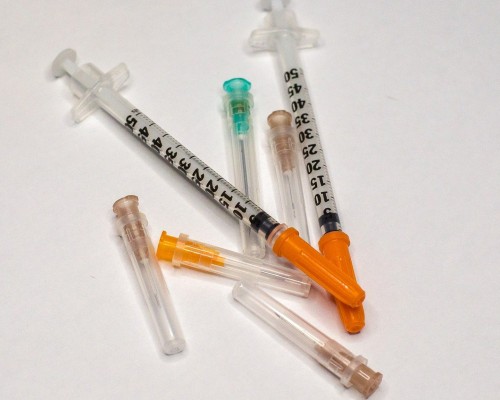Opioid agonist treatment, commonly methadone or buprenorphine, for people dependent on heroin or other opioid drugs has an important role to play in suicide prevention, according to University of Bristol-led research published in The Lancet Psychiatry.
People who are dependent on opioid drugs are at increased risk of suicide and self-harm. The researchers analysed the healthcare records of over 8,000 adults prescribed methadone or buprenorphine in primary care in England to see if there were particular times during and after drug treatment when they were most at risk.
They found that these patients were, overall, seven and a half times more likely to die by suicide than the general population. In addition, they found that in the first month after treatment stopped, they were four times more likely to die by suicide and more than twice as likely to be hospitalised for self-harm, compared to during a stable period on drug treatment.
Dr Prianka Padmanathan, Medical Research Council-funded Clinical Research Fellow, Population Health Sciences at the University of Bristol and lead author of the study, said: “The findings of this study emphasise that people with opioid dependence are much more likely to die by suicide compared with the general population. Opioid agonist treatment is often stigmatised and has been under-funded. This research strengthens the case for valuing initiatives that improve engagement with treatment and provide psychological support, particularly at the point at which treatment ends or is stopped.”
Professor Matt Hickman, senior author, from the National Institute for Health Research Health Protection Research Unit (NIHR HPRU) in Behavioural Science and Evaluation at the University of Bristol, said: “The UK has one of the highest rates of drug-related deaths in Europe, and these deaths most commonly involve opiates such as heroin. However, suicide prevention in people dependent on opiates is a neglected area, which is important for reducing drug-related harm, suicides, and premature death. The first few weeks after treatment cessation is critical a period to re-engage people so as to prevent overdose and also, as this study shows, suicide.”
Paper
‘Self-harm and suicide during and after opiate agonist treatment: a cohort study of primary care patients in England’ by Prianka Padmanathan et al in The Lancet Psychiatry
Commentary
‘Opiate agonist treatment for suicide prevention’ by Paul Nestadt and Alison Athey in The Lancet Psychiatry
Further information
About NIHR Health Protection Research Unit [NIHR HPRU] in Behavioural Science and Evaluation at the University of Bristol
The NIHR HPRU in Behavioural Science and Evaluation at University of Bristol is one of 14 HPRUs across England, part of a £58.7 million investment by the NIHR to protect the health of the nation.
The NIHR HPRU in Behavioural Science and Evaluation is a partnership between the UK Health Security Agency (UKHSA) and University of Bristol, in collaboration with MRC Biostatistics Research Unit at the University of Cambridge and University of the West of England.
Each NIHR HPRU undertakes high quality research that is used by UKHSA to keep the public safe from current and emerging public health threats.
About the NIHR
The mission of the National Institute for Health Research (NIHR) is to improve the health and wealth of the nation through research. We do this by:
Funding high quality, timely research that benefits the NHS, public health and social care;
Investing in world-class expertise, facilities and a skilled delivery workforce to translate discoveries into improved treatments and services;
Partnering with patients, service users, carers and communities, improving the relevance, quality and impact of our research;
Attracting, training and supporting the best researchers to tackle complex health and social care challenges;
Collaborating with other public funders, charities and industry to help shape a cohesive and globally competitive research system;
Funding applied global health research and training to meet the needs of the poorest people in low and middle income countries.
NIHR is funded by the Department of Health and Social Care. Its work in low and middle income countries is principally funded through UK Aid from the UK government.

